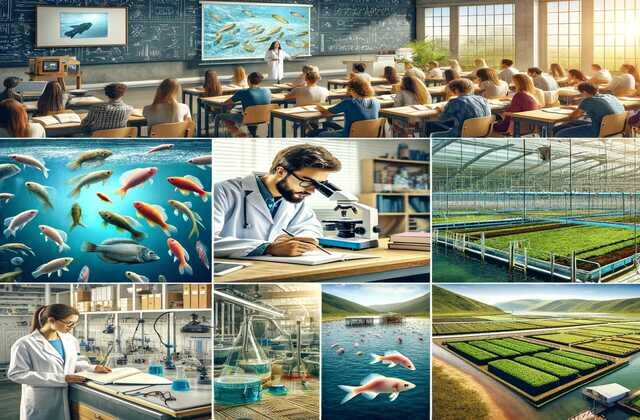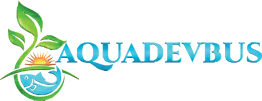
Aquaculture education is not just about classroom learning; it’s equally about rolling up your sleeves and diving into real-world experiences. Hands-on learning experiences are a cornerstone of aquaculture programs, providing students with invaluable practical skills and insights that cannot be gained through textbooks alone. These experiences are designed to bridge the gap between theoretical knowledge and practical application, preparing students for the complexities and challenges of the aquaculture industry.
Internships: Internships offer students the opportunity to work with aquaculture companies, research centers, and governmental agencies. These placements are tailored to provide exposure to various facets of the industry, from hatchery management and fish health to marketing and sustainability practices. Internships not only enhance students’ understanding of aquaculture operations but also significantly boost their employability by providing real-world experience and networking opportunities.
Field Trips: Field trips to aquaculture farms and research facilities allow students to observe and engage with the day-to-day operations of aquaculture production. These excursions provide insights into the practical challenges of aquaculture, including environmental management, species selection, and system design. Field trips are an essential component of aquaculture education, offering students a firsthand look at the application of their studies.
Laboratory Experiments: Laboratory work is integral to understanding the scientific principles underpinning aquaculture. Through experiments and practical sessions, students learn about water chemistry, fish physiology, nutrition, and disease diagnostics. These laboratory experiences are crucial for developing problem-solving skills and the ability to conduct research that can lead to innovations in aquaculture practices.
Capstone Projects: Many aquaculture programs culminate in a capstone project, where students apply their cumulative knowledge to address a real-world challenge in aquaculture. These projects often involve designing an aquaculture system, developing a business plan, or conducting a research study. Capstone projects are a testament to the importance of hands-on learning, showcasing students’ ability to integrate and apply their knowledge in practical settings.

